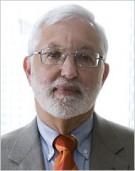
The DOJ has excused the failure to prosecute high-level individuals for fraud on one or more of three grounds.
While officials of the Department of Justice have been more circumspect in describing the roots of the financial crisis than have the various commissions of inquiry and other government agencies, I have seen nothing to indicate their disagreement with the widespread conclusion that fraud at every level permeated the bubble in mortgage-backed securities. Rather, their position has been to excuse their failure to prosecute high-level individuals for fraud in connection with the financial crisis on one or more of three grounds:
First, they have argued that proving fraudulent intent on the part of the high-level management of the banks and companies involved has proved difficult. It is undoubtedly true that the ranks of top management were several levels removed from those who were putting together the collateralized debt obligations and other securities offerings that were based on dubious mortgages; and the people generating the mortgages themselves were often at other companies and thus even further removed. And I want to stress again that I have no opinion as to whether any given top executive had knowledge of the dubious nature of the underlying mortgages, let alone fraudulent intent.
But what I do find surprising is that the Department of Justice should view the proving of intent as so difficult in this context. Who, for example, were generating the so-called “suspicious activity” reports of mortgage fraud that, as mentioned, increased so hugely in the years leading up to the crisis? Why, the banks themselves. A top level banker, one might argue, confronted with increasing evidence from his own and other banks that mortgage fraud was increasing, might have inquired as to why his bank’s mortgage-based securities continued to receive triple-A ratings? And if, despite these and other reports of suspicious activity, the executive failed to make such inquiries, might it be because he did not want to know what such inquiries would reveal?
This, of course, is what is known in the law as “willful blindness” or “conscious disregard.” It is a well-established basis on which federal prosecutors have asked juries to infer intent, including in cases involving complexities, such as accounting rules, at least as esoteric as those involved in the events leading up to the financial crisis. And while some federal courts have occasionally expressed qualifications about the use of the willful blindness approach to prove intent, the Supreme Court has consistently approved it. As that Court stated most recently in Global-Tech Appliances, Inc. v. SEB S.A., “The doctrine of willful blindness is well established in criminal law. Many criminal statutes require proof that a defendant acted knowingly or willfully, and courts applying the doctrine of willful blindness hold that defendants cannot escape the reach of these statutes by deliberately shielding themselves from clear evidence of critical facts that are strongly suggested by the circumstances.” Thus, the Department’s claim that proving intent in the financial crisis context is particularly difficult may strike some as doubtful.
Second, and even weaker, the Department of Justice has sometimes argued that, because the institutions to whom mortgage-backed securities were sold were themselves sophisticated investors, it might be difficult to prove reliance. Thus, in defending the failure to prosecute high-level executives for frauds arising from the sale of mortgage-backed securities, the then head of the Department of Justice’s Criminal Division, told PBS that “in a criminal case … I have to prove not only that you made a false statement but that you intended to commit a crime, and also that the other side of the transaction relied on what you were saying. And frankly, in many of the securitizations and the kinds of transactions we’re talking about, in reality you had very sophisticated counterparties on both sides. And so even though one side may have said something was dark blue when really we can say it was sky blue, the other side of the transaction, the other sophisticated party, wasn’t relying at all on the description of the color.”
Actually, given the fact that these securities were bought and sold at lightning speed, it is by no means obvious that even a sophisticated counterparty would have detected the problems with the arcane, convoluted mortgage-backed derivatives they were being asked to purchase. But there is a more fundamental problem with the above-quoted statement from the former head of the Criminal Division, which is that it totally misstates the law. In actuality, in a criminal fraud case the government is never required to prove reliance, ever. The reason, of course, is that would give a crooked seller a license to lie whenever he was dealing with a sophisticated counterparty. The law, however, says that society is harmed when a seller purposely lies about a material fact, even if the immediate purchaser does not rely on that particular fact, because such misrepresentations create problems for the market as a whole. And surely there never was a situation in which the sale of dubious mortgage-backed securities created more of a huge problem for the marketplace, and society as a whole, than in the recent financial crisis.
The third reason the Department has sometimes given for not bringing these prosecutions is that to do so would itself harm the economy. Thus, Attorney General Holder himself told Congress that “it does become difficult for us to prosecute them when we are hit with indications that if we do prosecute – if we do bring a criminal charge – it will have a negative impact on the national economy, perhaps even the world economy.” To a federal judge, who takes an oath to apply the law equally to rich and to poor, this excuse – sometimes labeled the “too big to jail” excuse – is disturbing, frankly, in what it says about the Department’s apparent disregard for equality under the law.
In fairness, however, Mr. Holder (who later claimed his comment was misconstrued) was referring to the prosecution of financial institutions, rather than their CEOs. Moreover, he might have also been influenced, as his Department unquestionably was, by the adverse reaction to the Arthur Anderson case, where that accounting firm was forced out of business by a prosecution that was ultimately reversed on appeal. But if we are talking about prosecuting individuals, the excuse becomes entirely irrelevant; for no one that I know of has ever contended that a big financial institution would collapse if one or more of its high-level executives were prosecuted, as opposed to the institution itself.




